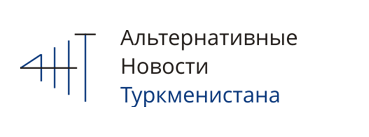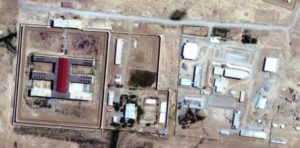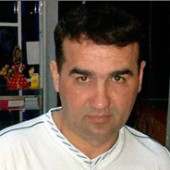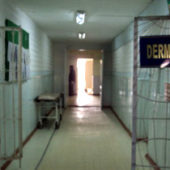For 1.5 years, the Ovadan-Depe facility has banned medicines in parcels to inmates
Since November 2015, Sary Komekov, the head of the Turkmen prison Ovadan-Depe (facility code: AH-T/2) banned all types of medicines from parcels sent to prisoners from outside, alleging that their relatives were sending opioid drugs, such as Tramadol, among other medicines. As a result, around a dozen convicts have not been able to access the medications they need.
This relates only to prisoners convicted of criminal offenses. Political prisoners of the seventh block of the prison, as well as those convicted for religious reasons in the fifth block have never been allowed to receive parcels at all.
Komekov argued that his decision was justified also because the prison’s medical unit was already able to administer medicines, relatives of the detained told ATN.
The prison’s clinic, however, can only provide basic medicines. Analgesic drugs for pain and spasm are available, but medicines for more serious diseases are absent and the prisoners have to buy them. For 100 manats ($28), for example, one can buy a 10-day course of vitamins. The same applies to the purchase of dextrose infusion, sleeping pills such as Sonmol and others.
Prisoners pay the money to the head of the medical unit, under the table. The latter are often caught red-handed and replaced.
In the spring of 2016, an inmate from Balkanabad (Western Turkmenistan) died in prison. He was found dead in cell №107 of the eighth block of the facility. The inmate had developed problems with his lower limbs. Gangrene set in due to a lack of necessary medical treatment. Before his death, he could not walk anymore. In one of his last meetings with his relatives, the inmate had to be carried out by the prison guards.
At present, a dozen inmates have reportedly asked for treatments that the prison is unable to provide. Some of them have been suffering from stomach ulcers, pancreatic diseases, and various vascular and intestinal diseases.
The Ovadan-Depe facility has separate cells for inmates with infectious diseases, such as tuberculosis. However, inmates with tuberculosis sometimes prefer to be around healthy inmates. To them, the prison’s medical unit occasionally gives Rifampicin and Streptomycin antibiotics, but this only makes the disease drug resistant.
It is almost impossible to obtain a referral to the MR-B/15 prison hospital in the village of Mary-GRES (Southern Turkmenistan). Prisoners have to first bribe Komekov with a sum equivalent to around $500. However, most inmates and their relatives simply do not have this money. Secondly, even if the visiting medical commission decides that it would be appropriate for the inmate to be transferred to a hospital, Komekov could still impede the transfer citing “security reasons”.
“Despite improvements for what concerns food and amenities, such as allowing ventilators in cells, our inability to send the inmates the medicines they need is slowly killing them,” the inmates’ relatives told ATN.
“We ask the Ministry of Interior and the government of Turkmenistan to reconsider and reverse Komekov’s decision.”
Relatives also said that on weekdays sick inmates are fed around 20 grams of butter, jelly, one boiled egg and kefir. Twice-weekly, on Tuesdays and Thursdays, they eat pilaf. In addition, they are unofficially allowed to purchase food in the dining room and cook for themselves with portable spiral hobs in the cells.
Article 61 of the Punishment Implementation Code of Turkmenistan states that each prison facility determines internally the list of objects that inmates are not allowed to receive from outside the prison.




